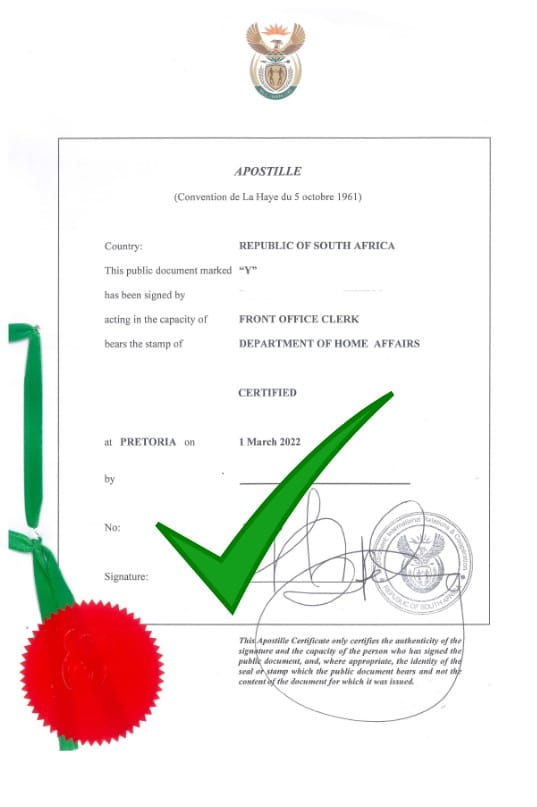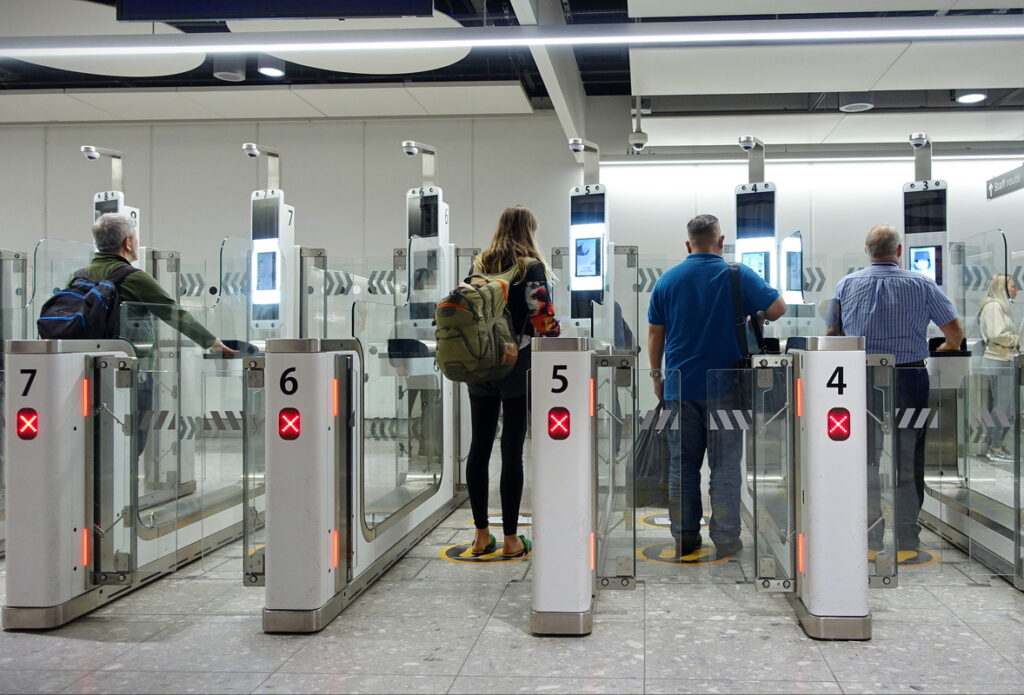The Hague Apostille Process in Spain can be overwhelming or confusing when gathering documents to support your move to Spain. It was an unknown concept that I had to get to grips with. But while it is a crucial step in the immigration process—covering visas, residency, and citizenship applications—it is an easy concept to grasp and process to follow.
This guide explains the Apostille process, why you need it, and how to ensure the process works for you.
What is the Hague Apostille Process In Spain?
The first thing to understand is that it is a process — the Apostille Process.
It certifies the origin of a public document (e.g., a birth certificate) in its country of origin for use in other countries without the need for further authentication. These countries are members of the Hague Apostille Convention of 1961. Over 100 countries are members, including Spain, the US, and the UK.
A standard Apostille certificate, which verifies the signature, seal, and status of the issuing authority, is affixed to the document.
The Apostille is issued by a ‘competent authority’ in the country from which the document originates. This could be the Secretary of State’s office in the US or the Foreign, Commonwealth, and Development Office in the UK.
Without an apostille, your documents may not be accepted, leading to delays and complications in your plans.

Why You Need an Apostille for Spain
Spain, like many other countries, requires foreign documents to be authenticated to ensure their legitimacy. This is necessary for many legal, educational, immigration, and professional purposes. This guide focuses on immigration, especially visas and residency in Spain.
Documents That May Require an Apostille
This list is not exhaustive, but documents include:
- Birth Certificate
- Marriage Certificate
- Criminal Background Check
- Academic Transcripts and Diplomas
- Powers of Attorney
Apostille Process for Spanish Immigration Applications
Spanish consulates and immigration authorities require certain documents to undergo the apostille process. For my Digital Nomad Visa application, I had to have my criminal record checked and my birth certificate apostilled.
Visa Applications
Birth Certificates, Marriage Certificates, and Criminal Background Checks must be apostilled.
Residency Applications
Similar to visa applications, plus any other document verifying identity, marital status, or background.
Citizenship Applications
Includes all the above documents plus any additional documentation required for proving eligibility for citizenship.
Step-by-Step Guide to Apostilling Documents
Once you know the documents you require, the process is:
1. Obtain the Document(s)
Ensure the document is the original or a certified copy.
2. Find the Appropriate Competent Authority in Your Home Country
‘Competent authority’ is the designated office or agency responsible for issuing apostilles in your country. This varies by country, but you can find your appropriate authorities (there can be more than one) at the Hague Conference on Private International Law website.
As an example of requiring multiple authorities, in the US, your FBI Check document can be apostilled by the Bureau of Consular Affairs. At the same time, if you live in Florida, your marriage certificate is apostilled by the Division of Corporations, a Florida State website.
3. Send the Document(s) to the Competent Authority
This can be done in person, by mail, or online, depending on the authority’s procedures.
You will have to complete all required forms, pay a fee (which varies by country and document type), and provide a return address for receiving the apostilled documents.
4. Receiving Your Apostilled Documents
Processing times for apostilles can vary, but it can be anything from a few days to a few weeks. Once you receive your apostilled documents, verify that the apostille is attached correctly and that the information is accurate. If there are errors, contact the issuing authority immediately to get the corrections made.
5. Submitting to Spanish Authorities
Send apostilled document(s) with your visa, residency, or citizenship application.
Important Considerations
While the basic apostille process is similar worldwide, there are some specific considerations when moving to Spain. For example, documents in languages other than Spanish may need to be translated by a certified translator. Also, some documents may require notarization before they can be apostilled.
If you are unclear if your documents require additional steps, contact your Spanish consulate or embassy.
Tips and Tricks
- Plan Well Ahead
Start the process early to avoid delays. The time it takes to process documents can vary widely between competent authorities. Additional delays can occur at peak times, such as in the summer. - Use a Professional Service
A golden rule here at Moving to Spain is to consider using services that specialize in obtaining apostilles to simplify the process and avoid costly delays and document resubmissions. - Keep Copies
Always keep copies of your apostilled documents. Always! - Check Expiry Dates
Some documents may have expiration dates. Ensure they are valid at the time of submission and beyond likely processing times or specific time requirements. - Translate Documents
Where required, ensure all apostilled documents are translated into Spanish by a certified translator. - Consult with a Legal Expert
If your situation is unusual or has some specific aspects not covered in the immigration process you are following, seek advice from a legal expert specializing in Spanish immigration and citizenship.
Conclusion
The apostille process is essential for your documents to be recognized in Spain. Without the right documents apostilled correctly, your application will fail.
However, understanding and following the necessary steps becomes just another reasonably straightforward step in your moving to Spain journey.
Remember to start the process early, double-check all requirements, and don’t hesitate to seek assistance from relevant authorities, be they professional experts or Spanish offices. If you follow this guide, you’ll have no issues with the Hague Apostille process for your Spanish immigration applications.








